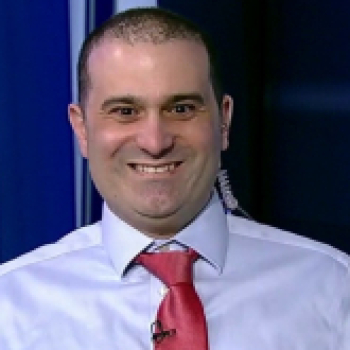The spring meetings of the World Bank and IMF will be held virtually this week amid a profound economic crisis spurred by a novel coronavirus. Unlike previous such viruses, this went global in such a destructive way that many countries have responded the same way. Encouraging social distancing, closing non-essential businesses, and enforcing lockdowns. The economic contraction that has begun is beyond what has been seen since the Great Depression. Even before the IMF's World Economic Outlook is released, Bloomberg Intelligence, the analytic arm of the news service, cautioned that its forecasts would not be sufficiently pessimistic.
The American social historian Studs Terkel called his book on the Great Depression, "Hard Times," because that is the way most experienced it. It was a Depression for those that had, but so many were struggling to make ends meet and to secure steady employment, that for them, it was just hard times. The same might be said for many of the poorest among us. Not only do many countries not have the resources to combat the virus, but their economies have been crushed. Commodity prices have fallen sharply, (terms of trade shock), trade itself has floundered, foreign private capital has fled, and tourism and worker remittance flows have dried up. Oxfam estimates that 500 mln people could slip into poverty, which it defines as income less than the equivalent of $5.5 a day.
Press reports indicated as more than half of the countries in the world have inquired about IMF assistance and roughly a third of the states have reached out to the World Bank. IMF's Georgieva noted that three months ago, the IMF expected per capita GDP to rise in 160 of its 189 members. Now it expects it to shrink in 170 members.
The IMF has two emergency lending programs. The Rapid Credit Facility can offer interest-free loans. The Rapid Finance Instrument can loan at about 1.5%. The size of both funds has doubled to $100 bln each. Reports suggest that countries have requested to draw on these facilities (~$20 bln), and some funds are said to have been distributed. News accounts suggest the World Bank has received 27 loan requests and as many 40 are in the pipeline. Together, the IMF and World Bank have over $1.2 trillion of resources to draw upon.
There have been some calls for a new SDR allotment, and some have proposed as much as 500 bln. This is a huge amount and would more than double the size of the existing supply (~205 bln). Individual countries are allocated in proportion to their IMF quotas, which means high-income countries and China get the bulk (60%+). The best way to feed birds is not necessarily to feed the horses more.
Since SDRs cannot be privately held, central banks who want to use them to intervene have to convert them first. A country wishing to convert their SDRs must find another member willing to buy them. The IMF can act as an intermediary, but it can, if needed, request a country with ample reserves to purchase the SDRs from a country with low reserves. It appears that the US and China are among the few countries that have more SDRs than they were allocated.
The IMF and World Bank are encouraging the G20 to declare a moratorium on bilateral government loan repayments. Bilateral government debt servicing is estimated at around $40 bln. Officials are focusing on 76 of the world's poorest countries that are eligible for the World Bank's International Development Association (IDA). A 6-9 month freeze is possible, but more ambitious calls want to extend it for next year as well. There are three levels of assistance that can be offered. There is debt relief (cancelation of debt), deferment of debt servicing, and re-scheduling of payments. It cannot be limited to the Paris Club, the informal group of major largely Western creditors, and Japan. China has emerged as the most significant bilateral lender to IDA members.
Even this may not be sufficient. Private creditors may need to participate, though it is more challenging to implement. The Institute of International Finance, an association of (~450) banks and other financial institutions, has called on private creditors to grant to also grant forbearance to the poorest countries as well. Moreover, low-income countries typically have more debt in domestic hands than by foreign investors.
Separately from the World Economic Outlook, the Global Financial Stability Report will be issued. The freezing up of the global capital markets has eased, though there has not been a return to the status quo ante. More extensive central bank action was provided than during the Great Financial Crisis. Perhaps, the most revealing evidence that the worst is past is that arguments that the "encroachment" of the markets has gone too far and that "moral hazards" have been established, which will encourage poor behavior in the future are beginning to surface. The Federal Reserve's inclusion of a limited amount of bonds that recently (after the announcement of its two corporate bond-buying facilities) lost their investment-grade status proved too much for some observers.











Add a Comment
We encourage you to use comments to engage with other users, share your perspective and ask questions of authors and each other. However, in order to maintain the high level of discourse we’ve all come to value and expect, please keep the following criteria in mind:
Enrich the conversation, don’t trash it.
Stay focused and on track. Only post material that’s relevant to the topic being discussed.
Be respectful. Even negative opinions can be framed positively and diplomatically. Avoid profanity, slander or personal attacks directed at an author or another user. Racism, sexism and other forms of discrimination will not be tolerated.
Perpetrators of spam or abuse will be deleted from the site and prohibited from future registration at Investing.com’s discretion.